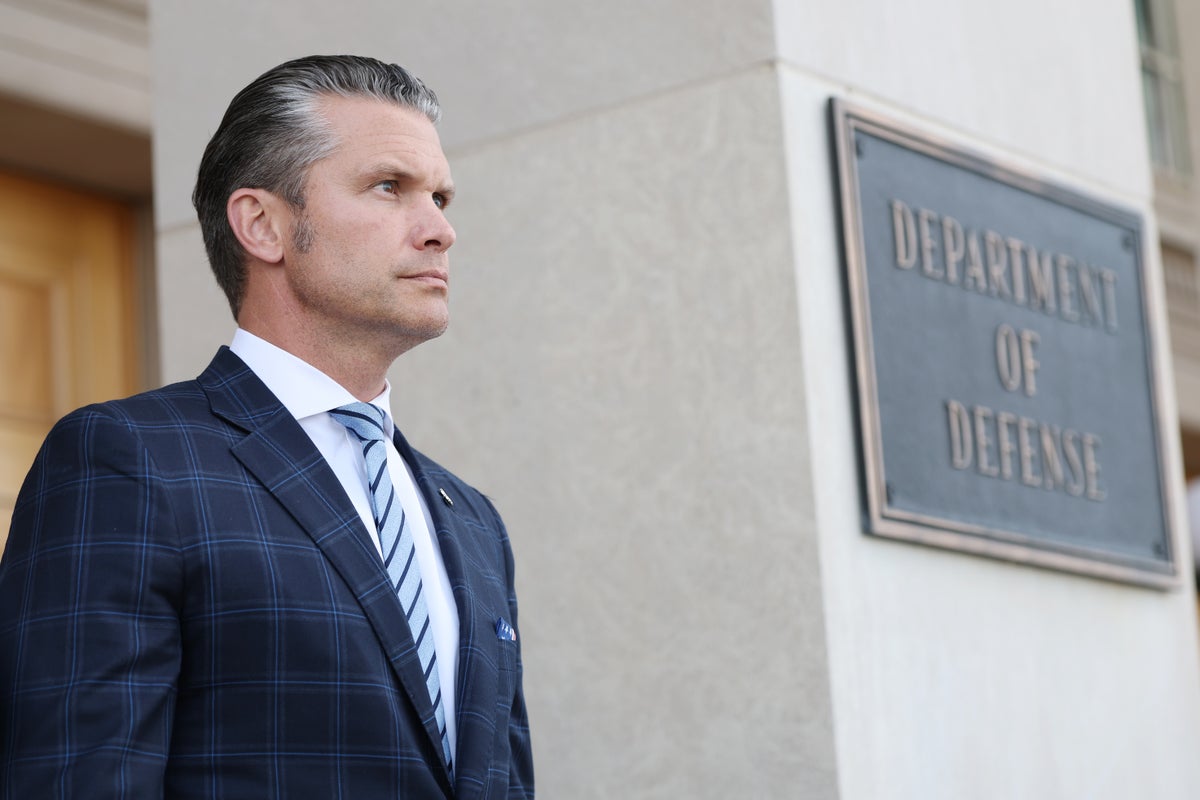Top Stories
Pentagon Tightens Media Access and Imposes New Restrictions

The Pentagon has mandated that journalists refrain from using unauthorized materials, including unclassified information, as part of a new set of restrictions introduced by Secretary of Defense Pete Hegseth. This decision follows significant frustration within the department regarding recent leaks. In a post on X, Hegseth stated that any journalists who do not comply with these regulations risk having their credentials revoked.
According to the newly circulated 17-page document, the Defense Department requires that all information, even if unclassified, must receive approval for public release from an authorized official before dissemination. Hegseth emphasized, “The ‘press’ does not run the Pentagon — the people do.” He further noted that the press will no longer have unrestricted access to secure facilities, stating, “Wear a badge and follow the rules — or go home.”
Media Organizations Respond to Restrictions
The National Press Club has condemned these restrictions, arguing they threaten the independence of journalism at the Pentagon. In a statement, the organization’s president, Mike Balsamo, expressed concern, saying, “If the news about our military must first be approved by the government, then the public is no longer getting independent reporting.” He highlighted that the ability of reporters to seek facts without government permission has been crucial for transparent coverage of military affairs.
In February, Hegseth made headlines by removing several prominent news organizations from their designated Pentagon offices, including the New York Times, NBC News, and NPR. These outlets were replaced by right-leaning media such as Newsmax, OAN, and Breitbart. This strategic shift has raised alarms about the potential for bias in military reporting.
Background of the Recent Leaks and Consequences
The Pentagon has faced a series of high-profile leaks under Hegseth’s leadership, prompting him to take drastic measures to prevent further disclosures. Following the Signalgate scandal in March, which involved a significant security breach after former national security adviser Mike Waltz mistakenly included a media figure in sensitive communications, Hegseth began administering polygraph tests to individuals within his inner circle. Reports from The Washington Post indicate that these tests were aimed at U.S. officials and others with relevant knowledge of classified matters.
The fallout from the Signalgate incident led to the dismissal of three senior Pentagon appointees — Dan Caldwell, Colin Carroll, and Darin Selnick — who were accused of leaking sensitive information to the press. Each of the men has denied any wrongdoing.
Following the controversies, Waltz lost his position but was later confirmed as Trump’s U.S. ambassador to the United Nations by the Senate. Meanwhile, Hegseth has remained in his role, continuing to enforce stringent measures against unauthorized disclosures.
The implications of these new policies may reverberate through the media landscape, raising questions about the balance between national security and the public’s right to information. As the Pentagon enforces these regulations, journalists and media organizations will likely continue to advocate for transparency and independent reporting.
-

 Health3 months ago
Health3 months agoNeurologist Warns Excessive Use of Supplements Can Harm Brain
-

 Health3 months ago
Health3 months agoFiona Phillips’ Husband Shares Heartfelt Update on Her Alzheimer’s Journey
-

 Science2 months ago
Science2 months agoBrian Cox Addresses Claims of Alien Probe in 3I/ATLAS Discovery
-

 Science2 months ago
Science2 months agoNASA Investigates Unusual Comet 3I/ATLAS; New Findings Emerge
-

 Science1 month ago
Science1 month agoScientists Examine 3I/ATLAS: Alien Artifact or Cosmic Oddity?
-

 Entertainment5 months ago
Entertainment5 months agoKerry Katona Discusses Future Baby Plans and Brian McFadden’s Wedding
-

 Science1 month ago
Science1 month agoNASA Investigates Speedy Object 3I/ATLAS, Sparking Speculation
-

 Entertainment2 months ago
Entertainment2 months agoLewis Cope Addresses Accusations of Dance Training Advantage
-

 Entertainment4 months ago
Entertainment4 months agoEmmerdale Faces Tension as Dylan and April’s Lives Hang in the Balance
-

 World3 months ago
World3 months agoCole Palmer’s Cryptic Message to Kobbie Mainoo Following Loan Talks
-

 Science1 month ago
Science1 month agoNASA Scientists Explore Origins of 3I/ATLAS, a Fast-Moving Visitor
-

 Entertainment4 months ago
Entertainment4 months agoMajor Cast Changes at Coronation Street: Exits and Returns in 2025









